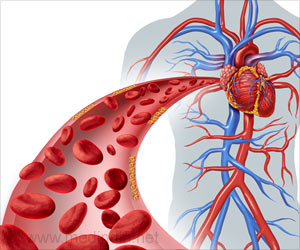High-density lipoprotein is good cholesterol, low and high levels of HDL may not reduce a person’s risk of heart disease and other non-cardiovascular disease, claims study.
Highlights
- High-density lipoprotein (HDL) is also known as good cholesterol as it reduces the risk of heart disease and stroke.
- But a new study claims that raising the levels of good cholesterol may not reduce a person's risk of heart disease.
- The study found that individuals with very high HDL levels had an increased risk of non-cardiovascular related death such as cancer.
Good Cholesterol may not Lower the Risk of Cardiovascular Disease
The current study involved over 631,000 individuals without a history of cardiovascular diseases. The study was conducted by researchers at Institute for Clinical Evaluative Sciences in Toronto. The researchers studied the participants who were involved in the CANHEART cohort, a research database that links together multiple individual-level population-based datasets on sociodemographics, cardiac risk factors and co-morbidities, medications, in Ontario, Canada. The cohort study involved patients between 40 and 105 years old, with an average of 57.2 and lived in Ontario for at least two years as of January 1, 2008.
The study evaluated the association between HDL and death in individuals living in the same environment exposed to the same health care system. The participants were divided into two groups based on their HDL levels to allow researchers to examine the relationship between HDL and mortality.
The HDL levels of people with healthier lifestyles were compared to those with less healthy lifestyle habits. The researchers found that the lowest levels of HDL were seen in people who were socioeconomically disadvantaged and who had unhealthy lifestyle behaviors, more cardiac risk factors and medical co-morbidities.
The findings of the study are similar to other studies showing low HDL levels associated with increased cardiovascular disease death. But the current study is the first to show a similar relationship between HDL and cancer death and other causes of death. The researchers are not sure of why very high levels of HDL increased the rates of non-cardiovascular related death. The researchers concluded that the study casts doubt on HDL being used as a risk factor for heart disease.
"Focusing on raising HDL is likely not going to help these patients, but these findings show that one of the best interventions in treating and preventing heart disease continues to be lifestyle changes."
Limitations of the Study
The researchers did not examine the important aspects of HDL cholesterol such as the relationship of particle sizes, subclasses or function with both cardiovascular and non-cardiovascular death.
The smoking status and alcohol consumption of the study population were not analyzed but were able to supplement that data from an additional survey.
The study is published in the Journal of the American College of Cardiology.
Source-Medindia
















